X: The Unknown (1956)
Directed by: Joseph Losey, Leslie Norman
Written by: Jimmy Sangster
Starring: Anthony Newley, Dean Jagger, Edward Chapman, Leo McKern
UK
AVAILABLE ON BLU RAY AND DVD [Blu Ray Region B Australia only]
RUNNING TIME: 81 min
REVIEWED BY: Dr Lenera, Official HCF Critic
In the Lochmouth region of Scotland, a group of soldiers are taking turns using a Geiger counter to find a small and harmless hidden source of radioactivity in a wide pit as practice until ground water starts to boil and an explosion kills one soldier and badly burns another on his back, leaving a Y-shaped crack in the ground with no apparent bottom. Dr Adam Royston is called in to investigate, along with Inspector McGill, who runs security at the UK Atomic Energy Commission. That night, a local boy, on a dare from his friend, goes to a tower on the marshes where he sees something horrific, and, when Royston investigates the tower, he finds an old man inside who had a canister of a formerly radioactive material, now drained of radioactivity….
Though nowhere as good or as interesting as The Quatemass Xperiment, X The Unknown is a solid little ‘B’ monster movie even closer to the many similar American pictures that were still flooding cinemas at the time. The first screenplay by Jimmy Sangster, who would go on to script some of the upcoming Hammer Gothic classics, is rather slapdash and at times a major fault, but the film has a memorably grim atmosphere mixing the realism of The Quatermass Xperiment with a little bit more traditional horror movie elements where you can almost sense Hammer edging towards the world of Frankenstein and Dracula, and, even though you don’t see it until three quarters of the way through, it has a very memorable, unusual and scary monster which mat well have influenced The Blob. Though it’s far less ambitious and has more moments which don’t come off, like the previous science fiction effort it feels quite fresh and hasn’t dated very much for a modern viewer. It’s rather a shame that, except for the next two Quatermass pictures, one of which wasn’t made for over a decade, and the even later Moon Zero Two, Hammer pretty much gave up on full blown science fiction, not to mention creature features, though they did plan to do a film about the Loch Ness Monster in the early ’70s.
The last Hammer co-production with the American company Exclusive Films who provided the obligatory US star, X The Unknown was actually written as a sequel to The Quatermass Xperiment, but Quatermass’s creator Nigel Kneale wouldn’t let them use the Quatermass character, so Professor Bernard Quatermass became Dr Adam Royston. The BBFC objected to Sangster’s tongue in cheek, over the top description of the monster in his script and producer Anthony Hinds replied that he wished the creature would be able to look anywhere near as good as described! The initial director was actually Joseph Losey, exiled to England because of the Hollywood blacklist of supposed Communists, and he did shoot some footage, but when Dean Jagger arrived he refused to work for a man he thought of as a Communist sympathiser. Therefore Losey was replaced by Leslie Norman [film critic Barry’s father] before shooting began. Losey’s departure was publicly attributed to “illness”. The bossy Norman, not really wanting to make this, managed to anger most of the cast and crew members during filming. Much of the film was shot in a quarry in Beaconsfield, which turned into a hell hole when it rained for three days and the crew had to spend the next three days digging the equipment out. It formed the bottom half of a double bill with the classic French suspenser Les Diaboliques for much of its fairly successful UK release. An American distribution deal with RKO fell through and after six months of hold ups largely caused by Warner Bros. complaining that the title was too much like their film Towards The Unknown, it was eventually released there paired with Hammer’s The Curse Of Frankenstein.
The films’ opening titles are quite memorable and immediately set a strong mood, as words occur over a black blob-like thing which in the next shot forms the ‘X’ of the movie’s title. As with The Quatermass Xperiment, we get down to business immediately. These films sure don’t waste any time getting on with it. Though Leslie Norman doesn’t use a handheld camera like Val Guest, he maintains Guest’s basic style for the early scenes at least, letting matters unfold in an almost semi-documentary and reasonably authentic seeming fashion, though there’s a bit more sardonic humour in the dialogue, plus a wide variety of Scottish accents, some authentic, some good, some okay and some really poor. There’s even a soldier called Haggis! Hurrah though, there’s Michael Ripper, soon to be one of Hammer’s most loved bit players, as a soldier! After the lengthy sequence with the soldiers in a pit, we have quite a nightmarish little moment with a young boy looking at the camera in horror as something approaches him while we hear a sinister sound sounding like cellophane being crinkled. The atmosphere here is terrific, what with the forest and the possibly haunted tower, and soon after we get a scene which really surprised me with its graphic and intense nature. Two illicit lovers, a doctor and a nurse, about to have a good time are killed in a laboratory, and after they both scream at the camera we get a very convincing shot of a finger dissolving and then a face beginning to dissolve in what, along with a later shot of a body dissolving leaving just the clothes, looks like a dry run for Dracula’s amazing demise two years later.
The picture begins to stall around now for a bit and the tension is considerably lessened by us knowing straight away that our hero’s scientific experiments in neutralising radiation using radio waves tuned to a certain frequency that we see a quarter of the way through will end up saving the day. Royston’s expository speech occurs too late when things should be getting more exciting, though the idea of a form of life that existed in distant prehistory when the Earth’s surface was largely molten being been trapped by the crust of the Earth as it cooled, and every 50 years there being a tidal surge that these creatures feel causing them to try to reach the surface in order to find food from radioactive sources, is certainly quite intriguing. Eventually we do see the monster in full, and the gelatinous lump of slime created by Hammer’s main special effects man Les Bowie may look unconvincing and dated to some, but it’s far better than some of the shoddy CGI things which don’t look like they’re actually there in similar films today. It moves through a village leading to a tense little moment when a mother’s young daughter is accidently left outside the church where people are hiding, though most of the emphasis is on the police and scientists trying to destroy the monster. This limits the effectiveness of the film a little, though a somewhat open ending leaves the viewer appropriately uncomfortable.
There are a few goofy things in this film which probably wouldn’t have got past Guest if he’d directed it, like a sequence of a guy in a four wheel drive Jeep stuck in mud only showing one tire spinning, or people constantly picking up the radioactive monster dust with their bare hands. Some moments don’t pay off in the way you think they’re going to, like a potentially scary scene of a soldier being lowered into the pit. Nonetheless there aren’t many comparable American science fiction chillers of the time which constantly mention radioactivity so much and presents its effect with such openness, right down to having a small boy die from radiation burns, a very sad moment touchingly underscored by composer James Bernard’s first emotional music cue. “ You meddle with things that kill. You’re a murderer” says the dead boy’s father to Quatermass no sorry Royston in what seems like an answer to criticisms of the almost entirely unsympathetic Quatermass in The Quatermass Xperiment. This being a British film of the time though, Royston and Inspector McGill just get on with the job with no hysteria and little time for pleasantries or banter, but it’s nice to see that they don’t seem to have much of a clue what’s going on for some time. Thankfully there’s no love interest either.
Jagger is a solid no-nonsense hero carrying around a cane just like he would do 23 years later in Game Of Death. Singer Anthony Newley appears in the first half than disappears. Overall the cast are solid if a little bland. The cinematography by Gerald Gibbs is just as strong as Walter J. Harvey’s work on The Quatermass Xperiment, a little less stylised but with prominent use of black which is just as striking, while James Bernard scores the film much like the previous one, mostly with shrill, icy strings playing simple patterns, the main title theme just consisting of a two note semi tone device. His dissonant scoring of the monster is hugely effective, though as before what’s most striking is how little music is actually in the film. It’s very loud though, sometimes drowning out the dialogue. Not a classic but still very watchable and with some noteworthy aspects, X The Unknown suffers from being sandwiched between two far superior Quatermass pictures, not to mention a certain Frankenstein movie, but remains a decent example of what can be done with a small budget and a cast and crew [well, except for perhaps the director!] who believe in what they’re making. And throughout the whole picture, there’s an awkward but interesting clash going on between typical British restraint and the bolder direction that Hammer were beginning to go in.

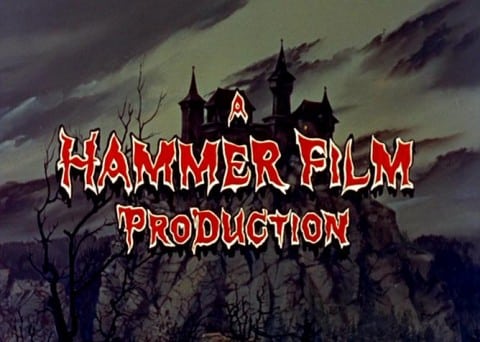
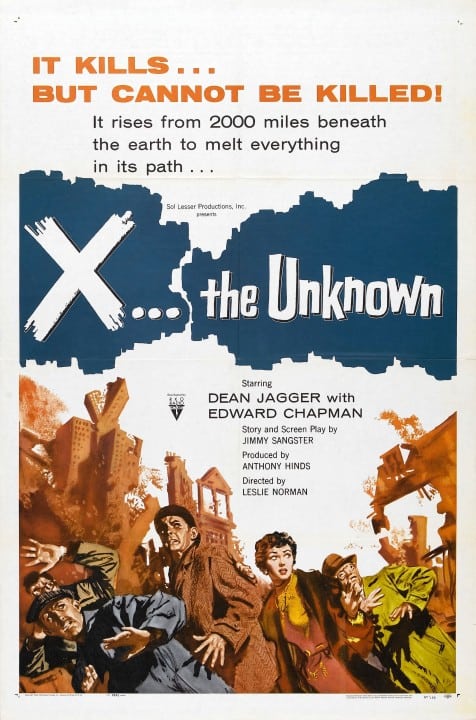
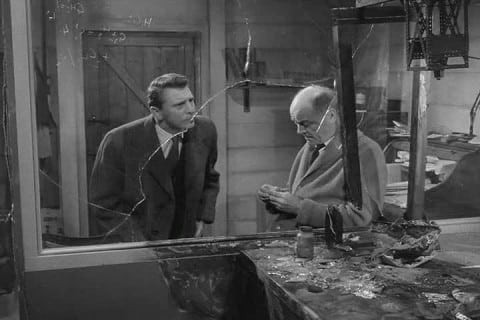
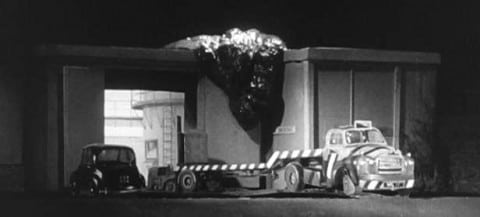




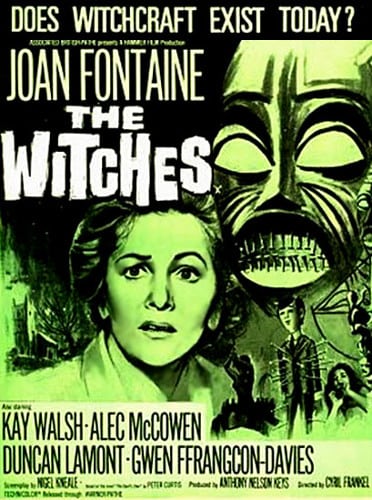
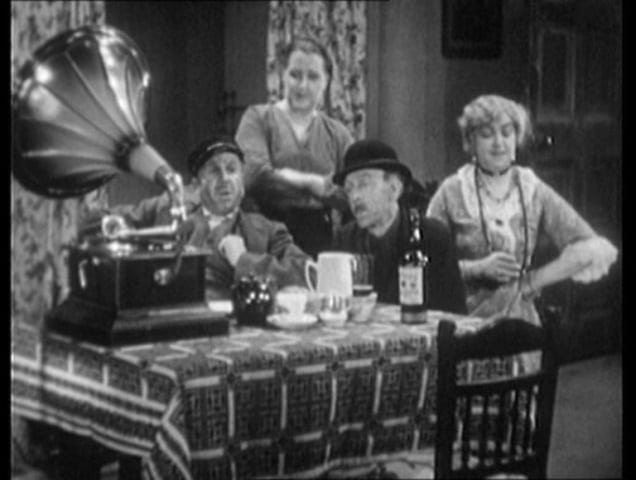
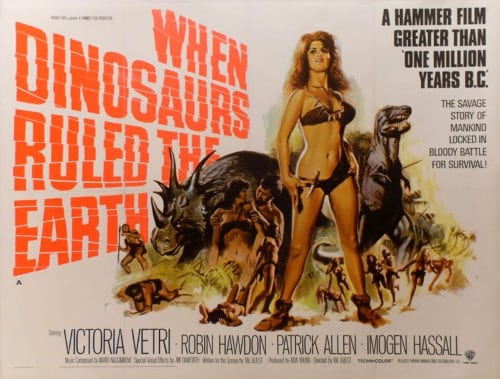
Be the first to comment